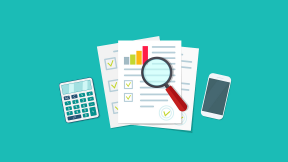Do taxes affect your credit score?

Federal taxes due to the IRS on April 15th each year do not directly affect your credit score, but how you pay for them can.
According to Experian™, credit reports “don't track tax bills or payments, so your record of paying taxes on time, or failing to do so, does not factor into the calculation of your credit score.” However, not paying your taxes or using a specific payment method—such as a credit card—could indirectly hurt your score.
Whether we like it or not, taxes are a part of life. We pay them to reap the benefits of government programs (Medicare, Social Security, etc.) as well as to fund the construction and maintenance of roads, bridges and the many other infrastructure investments done at the federal level. Also, it’s the law; paying taxes keeps you out of trouble.
In this article, you will learn about:
- Common ways of paying taxes
- What happens to your credit if you don’t pay your taxes
- Tax liens
- If the Internal Revenue Service (IRS) reports to credit bureaus
Common ways of paying for taxes
That time of year rolls back around and you know what you need to do—file and sometimes pay for taxes. If you find yourself owing, there are a few ways you can go about making these dreaded (but necessary) payments. According to the IRS, common ways of paying taxes include, but are not limited to, the following:
- Via electronic funds withdrawal—if you or a tax professional is using a specific software to e-file your taxes, you can withdraw funds directly from your bank account to pay your taxes.
- Credit or debit cards—you can use your credit/debit card to pay online, over the phone. Note that there may be fees for using credit cards to pay taxes.
- Pay with cash—you can do this by working with participating cash processing companies.
- Installment agreement—where you can pay your taxes over an agreed-upon period of time with interest. Note: You may need to pay additional setup fees.
What happens to your credit if you don’t pay your taxes?
Payment history is a major factor considered in your credit score, and this applies to taxes as well. Depending on which method you use to pay your taxes, you may be wondering: Does filing taxes late affect my credit score?
If you’re using your credit card to pay your taxes, be mindful about paying your bills on time and be aware that interest rates could increase your overall debt owed . Like any other credit card payment, paying your taxes on time can help protect (and may even improve) your credit score. Additionally, late payments can hurt your credit score and appear on your credit report.
You may want to monitor your credit with Chase Credit Journey® to help keep track of your financial behavior.
Tax liens
When you don’t pay your taxes, you might be subject to a tax lien. This is a legal document that indicates the government’s claim against your property after failing to pay back the amount you owe to the government. This happens after you’ve already been sent a bill (a Notice and Demand for Payment) and continue to neglect your payments.
While tax liens do not appear on credit reports, they are still considered a public record. That means potential lenders could be aware that you owe this money, and this could affect your chances of getting approved for loans, mortgages and more.
Does the IRS report to credit bureaus?
The IRS does not report to credit bureaus, and as of 2018, tax liens no longer appear on credit reports. Your taxes, tax liens or debts won’t be included in your credit history. However, the IRS may send your tax debt to a collections agency, which can impact your credit score, as collection is considered a derogatory mark. A derogatory mark is a negative item that can remain on your credit report for up to 7 years and can hinder you from receiving approvals for loans, superior interest rates and more.
Bottom line
Taxes are an inevitable fact of life and we must pay them—however, they may only affect our credit scores if we ignore them or fail to make payments in a timely manner. That’s why taking proactive steps, such as setting aside cash to reserve for taxes each year, can help you avoid hurting your credit score.



